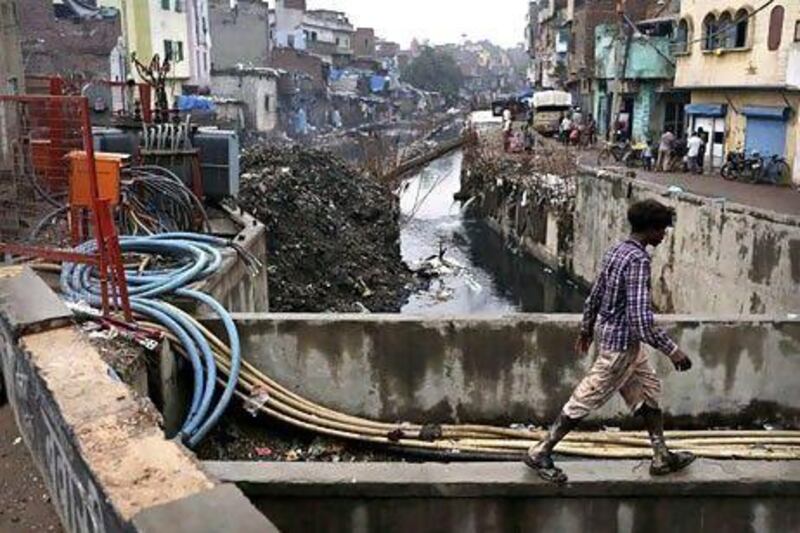Imagine if saboteurs from Pakistan interrupted India's electricity grid and cut supplies to 600 million people.
Or, if the Chinese army prevented key Indian coal mines from operating.
These would be matters not just of national security but of survival. Yet when the country inflicts such disasters on itself, it cannot find the political will to tackle the problem.
Last Tuesday, the biggest power cut in history struck northern and eastern India. Nearly 10 per cent of the world's population lives in the affected areas. The biggest scandal in Indian energy, though, is not the power failure, nor even that the electricity minister, Sushil Kumar Shinde, was promoted to home minister the day after, describing his own performance as "excellent".
It is that, after two decades of rapid economic growth, 400 million Indians still do not have access to electricity at all.
The blackout was blamed on some states drawing more power than they were entitled to and perhaps to a poor monsoon season, which requires intensified water pumping. The root cause is generation capacity has simply not kept up with demand, and is now 9 per cent short.
The blackout should not be a surprise - industries in Tamil Nadu and Andhra Pradesh have been routinely cut off for a day each week for some time.
As much as a quarter of India's electricity is stolen. Garlanding the back streets of Chennai are tangles of illegal connections silhouetted against the sky. Subsidised tariffs for agriculture are derisorily low. Even for those who do pay, electricity prices are set by populist state governments and do not cover generation costs. Utilities have accumulated losses of about US$36 billion (Dh 132.23bn).
Two-thirds of India's electricity comes from dirty, but cheap, domestic coal. The inefficient near-monopoly Coal India has failed to meet demand yet was allowed to decide its own penalty - and set it laughably low. Expanding mining is hampered by land-use disputes and Naxalite insurgencies in the coal-rich eastern states. Gas production is similarly constrained by low prices and hindrances on international investment.
India is still looking in the wrong place for solutions. The coal minister Shri Sriprakash Jaiswal has talked of creating a fund to buy overseas energy assets, as China and other Asian countries have done, starting with US$180 million (Dh661m) and building up to $10 billion. But India, with less than a tenth of China's foreign exchange reserves and running a 5 per cent budget deficit, is hardly equipped to compete.
These problems have to be solved at home, not overseas. The record of Gujarat's chief minister, Narendra Modi, is stained by human rights abuses but he has succeeded in reforming the state's electricity prices and reducing non-payment. So, too, has the long-time communist stronghold West Bengal.
Since the poorest do not have access to electricity at all and the rich use more electricity on televisions and air-conditioners, price controls are not a measure to tackle poverty. Better solutions are direct cash transfers, or a limited amount of electricity provided to each household at a "lifeline" rate.
Rural electrification is also a priority with a contribution from distributed generation such as solar, wind, small hydro-power and agricultural waste. As the rows of wind turbines turning in the deserts outside Jaisalmer testify, Rajasthan and Gujarat have in recent years made strides in renewables
In the longer term, perhaps an integrated south Asian grid is not an impossible dream.
Ideally, the great blackout of 2012 will be just the shock India's convoluted political scene needs to solve its electricity problems. The enemies within, entrenched special interests and populist politicians, can be more dangerous to India's future than any foe without.
Robin Mills is the head of consulting at Manaar Energy, and author of The Myth of the Oil Crisis and Capturing Carbon. robin@oilcrisismyth.com and Twitter @robinenergy





